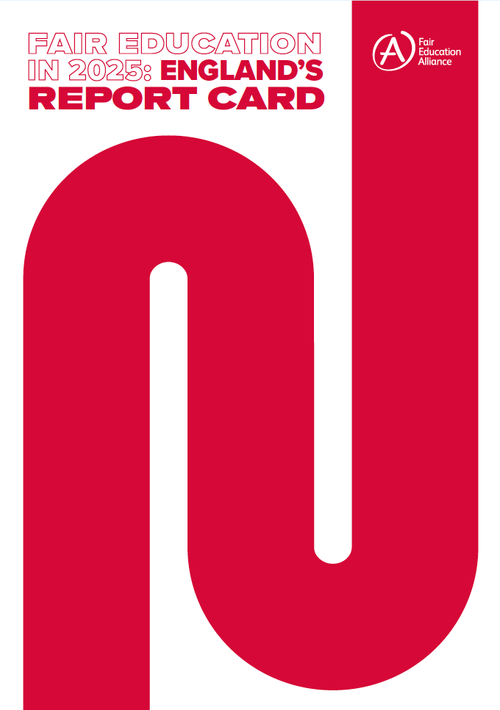Fair Education in 2025: England’s Report Card
Today, we launch Fair Education in 2025: England’s Report Card — a shared milestone in our journey to ensure every child and young person thrives. The Report Card highlights the inequalities that continue to hold young people back, and the actions we can take together to close these gaps.
It is also one of the first building blocks in delivering our new 2025–30 strategy, From Neighbourhood to National.
Most importantly, this Report Card belongs to all of us. It is a collective output — a tool for members, partners, and allies to use, share, and amplify their work.
The 2025 Report Card
This year’s Report Card shows that the gaps in attainment, wellbeing, skills and employment between children from low-income backgrounds and their peers remain alarmingly high – and in some areas are growing.
The Fair Education Impact Goals provide a snapshot of where inequities persist, from early childhood through higher education and employment.
At age five, the development gap has widened to 4.7 months – a 12% increase since 2019.
By the end of school, pupils from low-income households are almost two years behind their peers.
Young people are twice as likely to be NEET (not in education, employment or training).
Children from low-income backgrounds are twice as likely to report low life satisfaction.
The university access gap has widened to 20.8% — the largest on record.
These are not isolated problems. They are interlinked, structural inequalities that require urgent, collective action.
Our Fair Education Priorities, co-designed with FEA members, set out how we can collectively act to shift the system and ensure every child and young person thrives.
Our four Fair Education Priorities:
Make mission-driven government a reality
Support the education workforce in underserved areas
Prepare young people to contribute to tomorrow’s world
Universalise inclusion to meet pupil needs
Real Change: Our Priorities in Action
As part of the 2025 Report Card, we’re also sharing four real-world stories of how our priorities are already making a difference in communities across the country.
Fair Education Priority: Make mission-driven government a reality
Aligning local services using the Common Outcomes Framework to deliver shared goals for children and young people.
Fair Education Priority: Support the education workforce in underserved areas
Training pastoral staff across schools to better support wellbeing and resilience.
Fair Education Priority: Prepare young people to contribute to tomorrow’s world
Embedding skills development and careers education across the curriculum.
Fair Education Priority: Universalise inclusion to meet pupil needs
Creating a whole-school culture of inclusion that improves belonging, wellbeing, and outcomes.
What you can do next
The 2025 Report Card is just the beginning of the conversation and the work to deliver our new Neighbourhood to National strategy. Here’s how you can get involved:
Read the Report Card and share it with your colleagues
Watch the launch webinar or share with colleagues who missed it.
Share your perspective: Our collective voice needs yours in it. Help us amplify our reach by sharing our LinkedIn post and adding your reflections.
Stay connected: We’ll be sharing the Report Card at upcoming Party Conferences and other key sector events. If you’ll be there too, we’d love to connect and explore how we can work together to drive change.
Thank you for your commitment to building our collective voice as part of the Fair Education Alliance. By acting together, we can and will shift the conditions that hold inequity in place and create a future where every child’s potential is realised.
Janeen Hayat
Director of Collective Action. Fair Education Alliance





